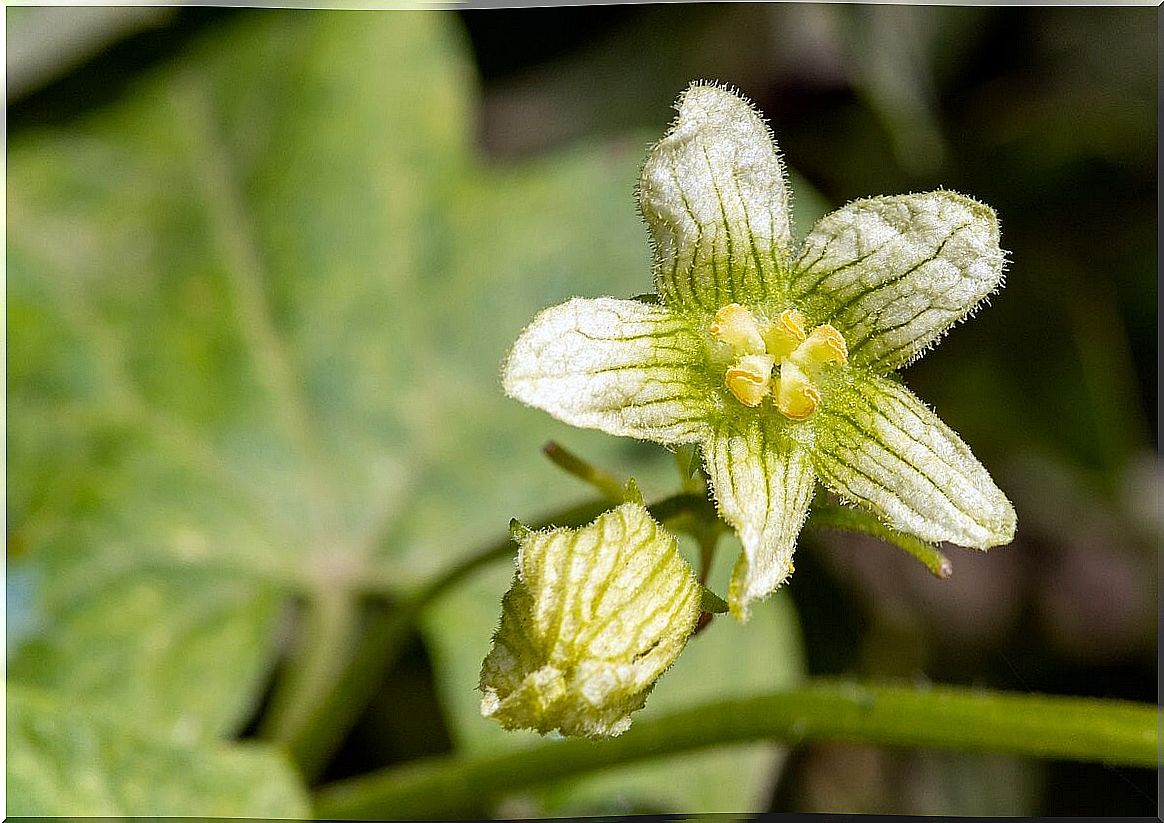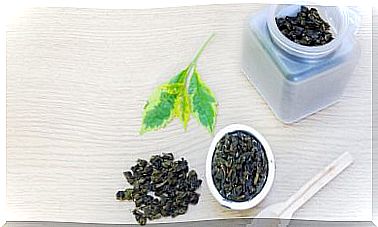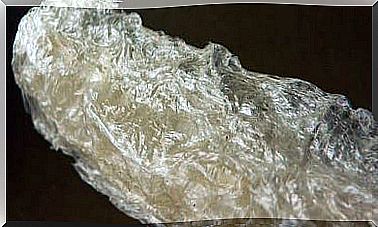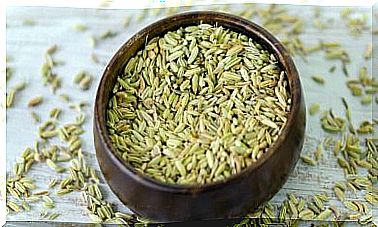What Is Bryonia Alba And What Are Its Uses?
Bryonia alba is a homeopathic medicine that has been used to combat inflammatory and digestive disorders. In turn, other benefits are attributed to it. In this space we detail them.

The “Bryonia alba” has become a well-known homeopathic remedy that is made from the roots of the plant of the same name, native to central, southern and eastern Europe.
It belongs to the cucurbitaceae family, characterized by being climbing plants by tendrils. It can be recognized by its pentagonal-shaped leaves with sharp teeth, greenish-white flowers, and fleshy black berries.
Now, despite the fact that the fruits of Bryonia alba are toxic, traditional medicine has used the root for therapeutic purposes. What are the principal uses? In the following space we detail them and reveal what their possible side effects are.
What benefits are attributed to it?
The active principles of “white bryony”, as it is also called, give it various medicinal properties. Let’s see in detail what they are and how they can improve health.
Constipation and fluid retention
The Bryonia alba is considered an emetic; that is, a remedy capable of inducing vomiting. Similarly, it can act as a diuretic, stimulating the elimination of water and electrolytes through the urine.
In general, despite the lack of evidence, popular literature states that it helps the following conditions:
- Constipation.
- Stomach ache.
- Fluid retention.

Inflammation
Many people use Bryonia alba for its possible anti-inflammatory effects. It is often used to reduce joint pain and is in fact a common ingredient in medications for rheumatoid arthritis and headaches.
Its mechanism of action consists of the dilation of blood vessels, the contraction of which is linked to migraine headaches and various ailments. However, the scientific evidence addressing such properties is not entirely conclusive yet.
A clinical trial published in the British Journal of Clinical Pharmacology found that the use of an extract of Bryonia and arnica had no effect on the inflammation and bleeding that can occur after heart surgery.
Anticancer activity
The active compounds that make up white bryony have been studied as adjuvants against cancer. A study published in the Journal of Natural Products determined that Bryonia alba root extracts have antitumor potential. Because of this, they not only decrease the risk of tumors, but appear to inhibit the expansion of these cells.
Meanwhile, an in vitro study published in the Avicenna Journal of Phytomedicine found that this plant has cytotoxic effects; that is, it prevents the division and growth of cells such as cancer cells.
In this case, research indicates that these properties are effective against squamous cell carcinoma of the head and neck, as well as adenocarcinoma of the cervix or cervix. However, human studies are needed to support this theory clinically.
Other benefits of Bryonia alba
Bryonia alba is considered a homeopathic remedy. Hence, popular culture attributes many other benefits to it. This covers the following:
- Relief from the flu and its symptoms.
- Decrease in mumps.
- Decrease in tracheitis, pneumonia and bronchitis.
- Control of dry eye syndrome.
- Relief of the feeling of vertigo.
Side effects and contraindications
The first thing you should know about this plant is that you should not consume the berries. These have high levels of toxicity, capable of causing chronic diseases and even death.
Now, the other parts of this plant can also be toxic, but they do not have fatal consequences. Whatever dose you take, it could cause you to experience symptoms such as:
- Sickness.
- Threw up.
- Dizziness.
- Fatigue.
- Difficulty breathing.
- Diarrhea.
- Excessive urination
For its part, given the lack of scientific evidence of its effects in pregnant and lactating women, its intake should be restricted until it receives the approval of a specialist.
Dosage and indications
Homeopathy stipulates different doses depending on the condition to be treated.
- During a fever accompanied by sweating, intense thirst and muscle pain, it is recommended to consume 5 granules of Bryonia alba in a 9 CH dilution (centesimal dilution) every 4 hours.
- In the case of arthritis, the established dose is 5 granules in a dilution of 5 CH distributed in 2 doses a day for 10 days. However, if you have acute synovitis, the dose should be administered every 2 hours.
- On the other hand, for dry eye syndrome it is suggested to take Bryonia alba in dilution of 5 CH, 6 times a day for 3 months.
eye! Dosages may vary according to the manufacturer of the supplement. Therefore, the information on the label should be verified. Also, if in doubt, ask your homeopathic doctor or herbalist. It should not be taken in combination with medical treatments due to the risk of interactions.

What is there to remember about Bryonia alba?
Bryonia alba is a homeopathic medicine that is made from the roots of the plant that bears the same name. This climbing plant native to the European continent stands out for having pentagonal leaves with sharp teeth, greenish-white flowers and poisonous black berries.
Regarding its medicinal properties, it is said to have an anti-inflammatory effect and anti-tumor activity. Additionally, it appears helpful in treating constipation, mumps, flu, arthritis, and dry eye syndrome.
However, its use should always be under supervision, given the high levels of toxicity. The berries can be deadly and consuming other parts of this plant in its different presentations, even in low quantities, can trigger a series of discomforts.








